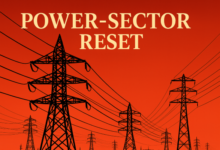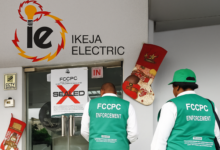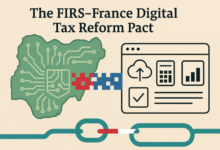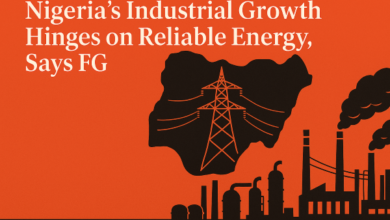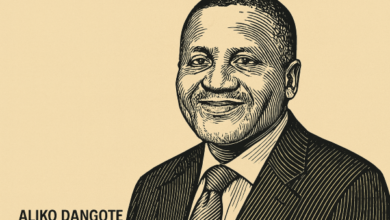CBN Boss Cardoso Reaffirms Commitment to Banks’ Stability, Lower Rates
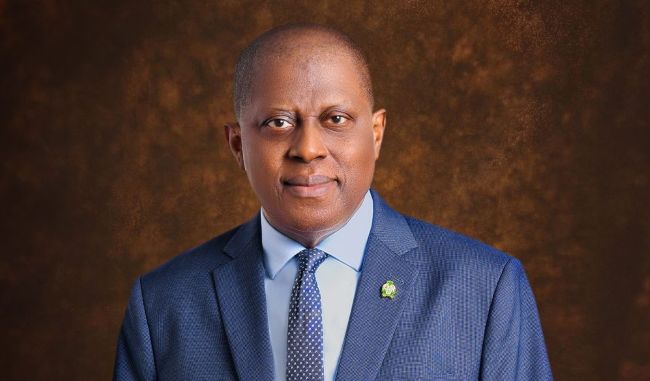
The Governor of the Central Bank of Nigeria (CBN), Olayemi Cardoso, has reaffirmed the apex bank’s focus on macroeconomic stability, a stronger banking sector, and positioning Nigeria as a preferred investment destination. Cardoso spoke at a fireside chat during the European Business Chamber (Eurocham Nigeria) C-Level Forum in Lagos, moderated by Andreas Voss, Chief Country Representative, Deutsche Bank Nigeria. The remarks were later amplified by Hakama Sidi-Ali, Acting Director, Corporate Communications at the CBN.
Cardoso said the ongoing recapitalisation of Nigerian banks is “making progress” and will produce more resilient institutions able to absorb shocks and finance growth. He linked renewed investor confidence to the CBN’s policy mix—foreign-exchange market reforms, tighter monetary conditions, and supervisory actions intended to stabilise the naira and anchor expectations.
On prices, Cardoso acknowledged that headline inflation remains elevated but stressed that it is decelerating on the back of the Bank’s tightening stance and complementary steps by fiscal authorities. “We will protect the stability re-established in the financial system with the utmost zeal,” he said, adding that the CBN’s primary objective is to sustain stability while addressing inflation and ensuring banks are capitalised enough to support corporate lending and investment.
The Governor also addressed the interest-rate outlook, noting a substantial potential for rates to decline as inflation continues to ease and as markets allocate capital more efficiently. In his view, that is the environment in which stronger corporate lending and higher investment will naturally follow.
Cardoso underscored that the recapitalisation directive—mandating higher minimum capital—is designed to fortify the financial system so it can support a broader range of economic activities without compromising prudential safety. The programme is expected to encourage balance-sheet strengthening, access to long-term funding, and—in some cases—strategic combinations among lenders to meet new thresholds.
Beyond balance sheets, the CBN chief highlighted technology-driven solutions and financial inclusion as priority levers for shared growth. The Bank, he said, will continue to deepen access, strengthen the fintech ecosystem, and use digital rails to tackle frictions that keep households and small businesses outside formal finance—an approach he linked to poverty reduction and productivity gains.
Crucially, Cardoso pointed to closer coordination with fiscal authorities—including the Ministry of Finance, Ministry of Industry, Trade and Investment, and the Budget Office—as a positive development that can embed reforms and deliver long-term stability. The message: monetary, fiscal and structural policies must pull in the same direction for Nigeria to translate macro stabilisation into investment, jobs and competitiveness.
What it means for banks and investors
For banks, the signal is clear: raise durable capital, clean up risks, and gear up for real-economy lending as conditions allow. For investors, the CBN’s emphasis on FX stability, inflation management and credible supervision indicates a policy path aimed at lowering uncertainty and re-rating Nigeria’s risk premium over time.
What to watch next
- Capital plans & capital-raising: rights issues, Tier-1/Tier-2 instruments, and potential M&A among mid-tier lenders.
- Inflation prints & MPC decisions: confirmation that disinflation persists, opening room for a measured rate pivot.
- FX market functioning: liquidity depth and fewer gaps between official and parallel markets as reforms bed in.
- Credit transmission: evidence that stronger bank capital is translating into longer-tenor, productive lending to corporates and SMEs.
- Inclusion metrics: sustained growth in digital account ownership, payments usage, and credit access via regulated channels.
BRANDECONOMY Take
Cardoso’s Lagos message knits together the three pillars Nigeria needs now—stable prices and FX, well-capitalised banks, and policy coordination. If recapitalisation delivers quality capital (not just nominal boosts), Nigeria can reduce systemic risk and unlock longer-tenor credit for manufacturing, power, and infrastructure.
Contrarian angle: The recap push will likely reshape market structure—some lenders may prefer strategic mergers over dilutive raises, potentially improving efficiency but demanding tough integration discipline. Real credibility will hinge on consistent FX supply, predictable rule-sets, and transparent supervision outcomes.
Bottom line: The framework is sound; execution—on capital quality, FX reform, and disinflation—will determine whether Nigeria secures the investment-grade behaviours needed to lower funding costs and crowd in private investment at scale.


